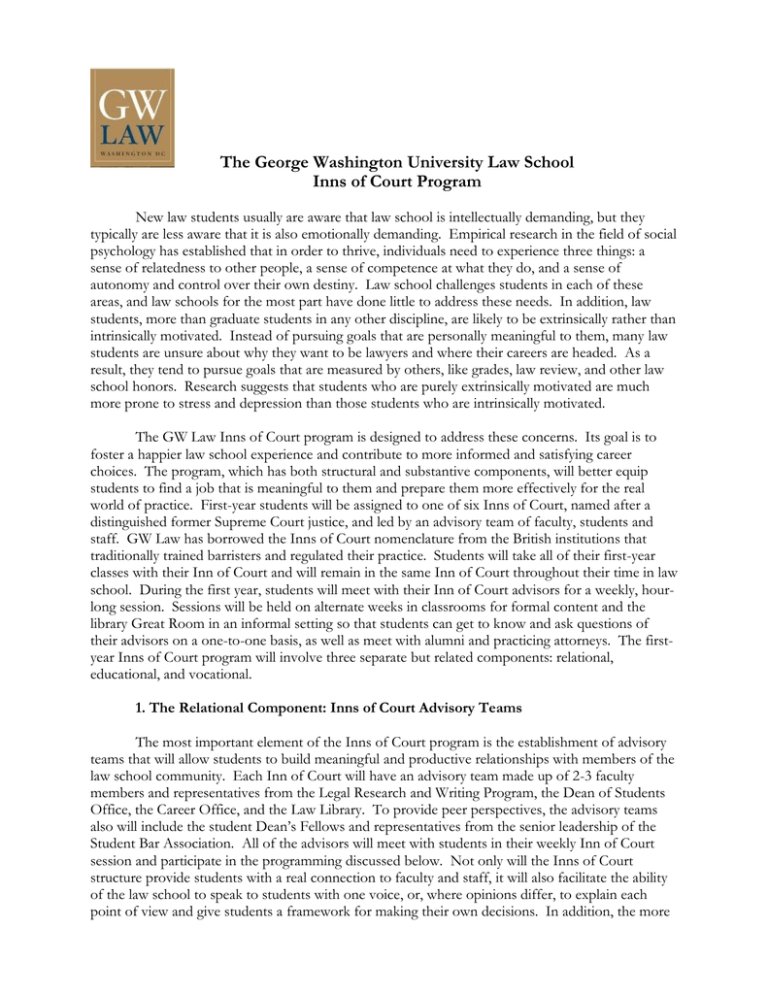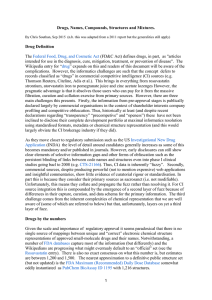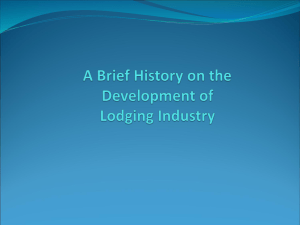The George Washington University Law School Inns
advertisement

The George Washington University Law School Inns of Court Program New law students usually are aware that law school is intellectually demanding, but they typically are less aware that it is also emotionally demanding. Empirical research in the field of social psychology has established that in order to thrive, individuals need to experience three things: a sense of relatedness to other people, a sense of competence at what they do, and a sense of autonomy and control over their own destiny. Law school challenges students in each of these areas, and law schools for the most part have done little to address these needs. In addition, law students, more than graduate students in any other discipline, are likely to be extrinsically rather than intrinsically motivated. Instead of pursuing goals that are personally meaningful to them, many law students are unsure about why they want to be lawyers and where their careers are headed. As a result, they tend to pursue goals that are measured by others, like grades, law review, and other law school honors. Research suggests that students who are purely extrinsically motivated are much more prone to stress and depression than those students who are intrinsically motivated. The GW Law Inns of Court program is designed to address these concerns. Its goal is to foster a happier law school experience and contribute to more informed and satisfying career choices. The program, which has both structural and substantive components, will better equip students to find a job that is meaningful to them and prepare them more effectively for the real world of practice. First-year students will be assigned to one of six Inns of Court, named after a distinguished former Supreme Court justice, and led by an advisory team of faculty, students and staff. GW Law has borrowed the Inns of Court nomenclature from the British institutions that traditionally trained barristers and regulated their practice. Students will take all of their first-year classes with their Inn of Court and will remain in the same Inn of Court throughout their time in law school. During the first year, students will meet with their Inn of Court advisors for a weekly, hourlong session. Sessions will be held on alternate weeks in classrooms for formal content and the library Great Room in an informal setting so that students can get to know and ask questions of their advisors on a one-to-one basis, as well as meet with alumni and practicing attorneys. The firstyear Inns of Court program will involve three separate but related components: relational, educational, and vocational. 1. The Relational Component: Inns of Court Advisory Teams The most important element of the Inns of Court program is the establishment of advisory teams that will allow students to build meaningful and productive relationships with members of the law school community. Each Inn of Court will have an advisory team made up of 2-3 faculty members and representatives from the Legal Research and Writing Program, the Dean of Students Office, the Career Office, and the Law Library. To provide peer perspectives, the advisory teams also will include the student Dean’s Fellows and representatives from the senior leadership of the Student Bar Association. All of the advisors will meet with students in their weekly Inn of Court session and participate in the programming discussed below. Not only will the Inns of Court structure provide students with a real connection to faculty and staff, it will also facilitate the ability of the law school to speak to students with one voice, or, where opinions differ, to explain each point of view and give students a framework for making their own decisions. In addition, the more informal Great Room sessions will give students time and access to their advisory teams to build the kinds of supportive relationships that will make law school less impersonal and more meaningful. 2. The Educational Component: Weekly Inns of Court Sessions The classroom Inns of Court sessions will offer three types of educational content: professional development information, academic support information, and mental health and wellbeing information. The professional development content will teach students about a range of professional skills not typically taught in law schools but critical to their success as lawyers, such as self-management, problem-solving and team collaboration. Students also will have the opportunity to participate in optional workshops each semester that will give them hands-on experience with the topics covered in the biweekly classroom sessions. The academic support content will consist of information about the goals of legal education and how students should be preparing for class and law school exams. Few professors provide detailed information on these subjects, and students frequently express confusion about the nature of law school exams and what they are supposed to be learning. The Inns of Court classroom sessions aim to fill this void by explicitly focusing on the pedagogical aspects of law school so that students will be adequately prepared both for class and for the final exam. Finally, to give students helpful strategies for dealing with the stress of law school, the classroom sessions will also provide information from the burgeoning social psychology literature on happiness and meaning in life. In particular, the Inns of Court sessions will offer guidance from the field of positive psychology about how to thrive in the law school environment, and build a happy and successful legal career. 3. The Vocational Component: Creating A Meaningful Legal Career The Inns of Court program also responds to students’ need to develop intrinsic motivation and a sense that they have some control over the direction and progress of their careers. The program does this in three ways. First, it equips students with the tools and resources they will need to take ownership of their careers and to make thoughtful and informed decisions about what type of law practice will be meaningful and rewarding to them. These tools and resources will include self-diagnostic tools – like the Myers-Briggs Type Indicator and the VIA Strengths Inventory – to help students better understand their own preferences and strengths. Second, students in each Inn of Court will meet with their assigned career advisor early in the school year to develop a statement of purpose for being in law school that will inform an individualized professional development plan. Third, the career advisors will help students connect with practitioners and alumni for informational interviews. Research shows that informational interviews are the most effective and useful way for students to find out about different areas and types of practice, and what will be a good fit for their interests, personalities and values. Making professional contacts and gaining increased confidence in interacting with professionals are significant collateral benefits. Moreover, students who begin career planning and networking at the start of law school are much more likely to be successful in their job searches by the end of law school. *** The three components of the Inns of Court program will enable students to feel more connected to others in the law school community, more confident about their ability to be successful lawyers, and more competent to chart a meaningful and satisfying career path. Through the Inns of Court, GW Law is answering the call to train lawyers who are happier and better prepared to practice. 2







